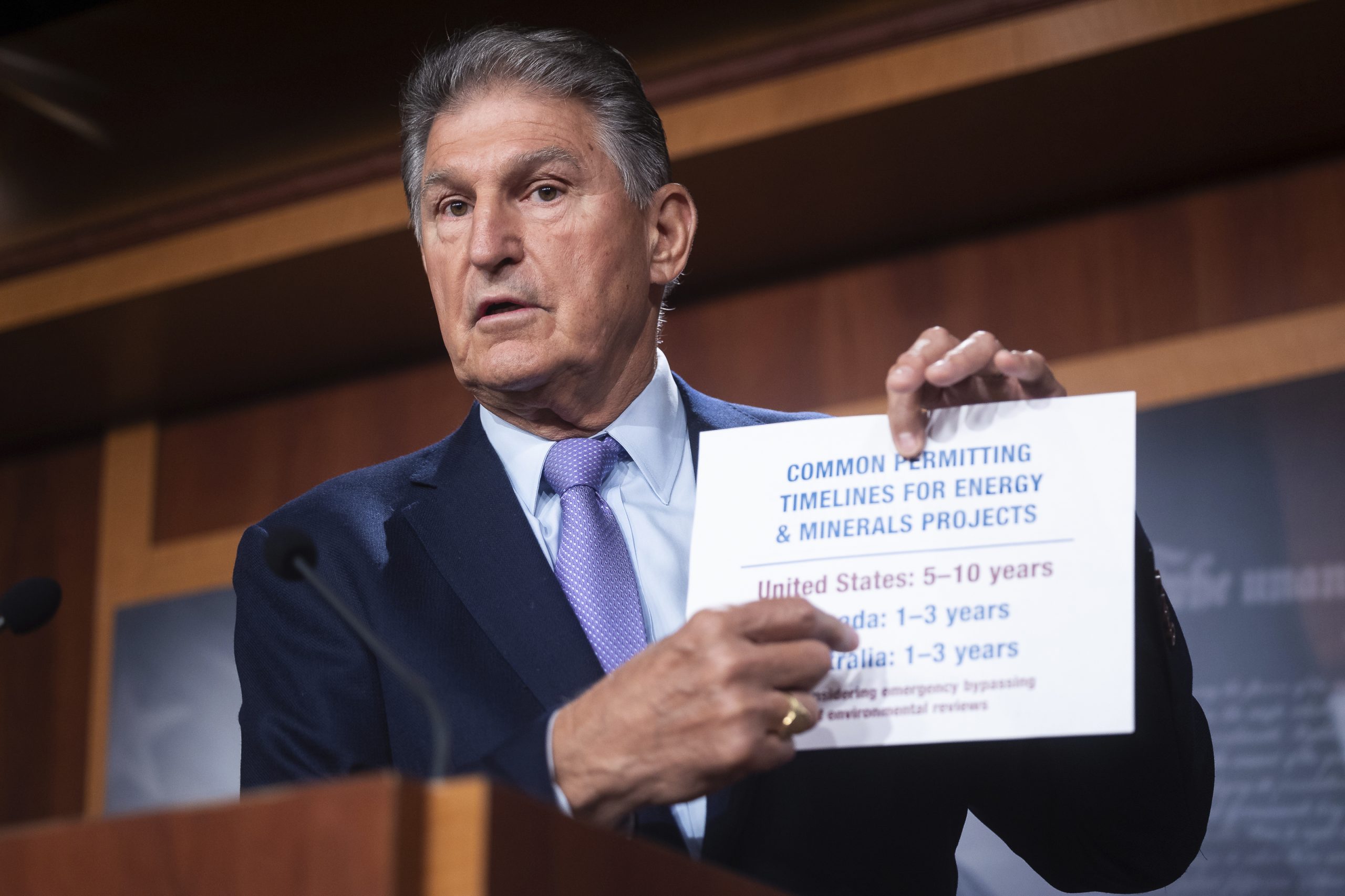👋 Hello and welcome to Energy News Weekly!
It’s been a few weeks since Congress passed its biggest climate spending package ever. So today, we break down the rise and fall of Sen. Joe Manchin’s efforts to get his end of the deal.

Following the clean energy transition comes with some mundane side effects — namely sorting through all the bureaucracy needed to make it happen.
Case in point: Congress spent the past week debating reforming the energy infrastructure permitting process — essentially the series of environmental reviews that an energy project has to go through before it’s approved, whether it’s a solar array or a new natural gas pipeline.
Democratic leaders promised Sen. Joe Manchin permitting reforms that would speed the process in exchange for his vote on their climate bill. Yet even before Manchin ultimately decided Tuesday evening to back down, the agreement didn’t look promising.
Climate advocates and some Democrats pretty quickly came out against the package, calling out provisions that would speed the construction of fossil fuel projects and advance the controversial Mountain Valley Pipeline. But as some experts and journalists are arguing, that may have been a sacrifice worth making.
That’s because faster permitting could also mean faster construction of transmission lines. And as a new study has found, the clean energy-boosting provisions in the Inflation Reduction Act will only succeed if the U.S. quickly builds a whole lot more of the major power lines needed to get clean energy from where it’s produced to where it’s needed.
The fate of those reforms will ultimately have to wait for another day. As the Senate prepared to vote Tuesday evening on a government spending package with the reforms attached, it became clear not enough lawmakers supported it. Manchin pulled his reforms, with a promise from the Senate’s Democratic leader Chuck Schumer that they’d work to speed up permitting by the end of the year.
In other clean energy news…
🚙 Asking too much from EVs: Experts say U.S. electric vehicle shoppers are prioritizing their occasional 300-plus mile trips over their short, daily drives, leading automakers to focus too much on expanding EV ranges. (Bloomberg)
☀️ Solar keeps Puerto Rico’s lights on: Puerto Rico has installed around 50,000 solar and battery power systems since Hurricane Maria in 2017, and most kept supplying power even after Hurricane Fiona caused an island-wide blackout last week. (NPR)
🏙️ A Green New Deal for cities: House Democrats push a bill that would send environmental cleanup and clean energy funding directly to local governments, bypassing conservative state legislatures. (The Nation)
🏭 How fossil fuels capitalized on Ukraine: Documents and letters show how a natural gas industry group used Russia’s war on Ukraine to encourage the U.S. to backtrack on its climate priorities and instead boost domestic gas production. (The Guardian)
🚘 Electric vehicles for everyone: Racial justice advocates aim to ensure electric vehicle tax credits and federal incentives to boost the construction of chargers benefit Black and Brown drivers. (Grist)
⛏️ “No one wants a mine in their backyard”: Decades of resistance to mining complicates the clean energy transition, which will rely on tons of critical minerals and metals to build batteries, wind turbines, and more. (Grist)
📢 We want to hear from you! Send us your questions, comments, and story tips by replying to this email.
💸 Support our work: The Energy News Network is powered by support from readers like you. Please give today and help us keep our news open and accessible for all.
📧 Want more energy news? Sign up for our daily digests.
